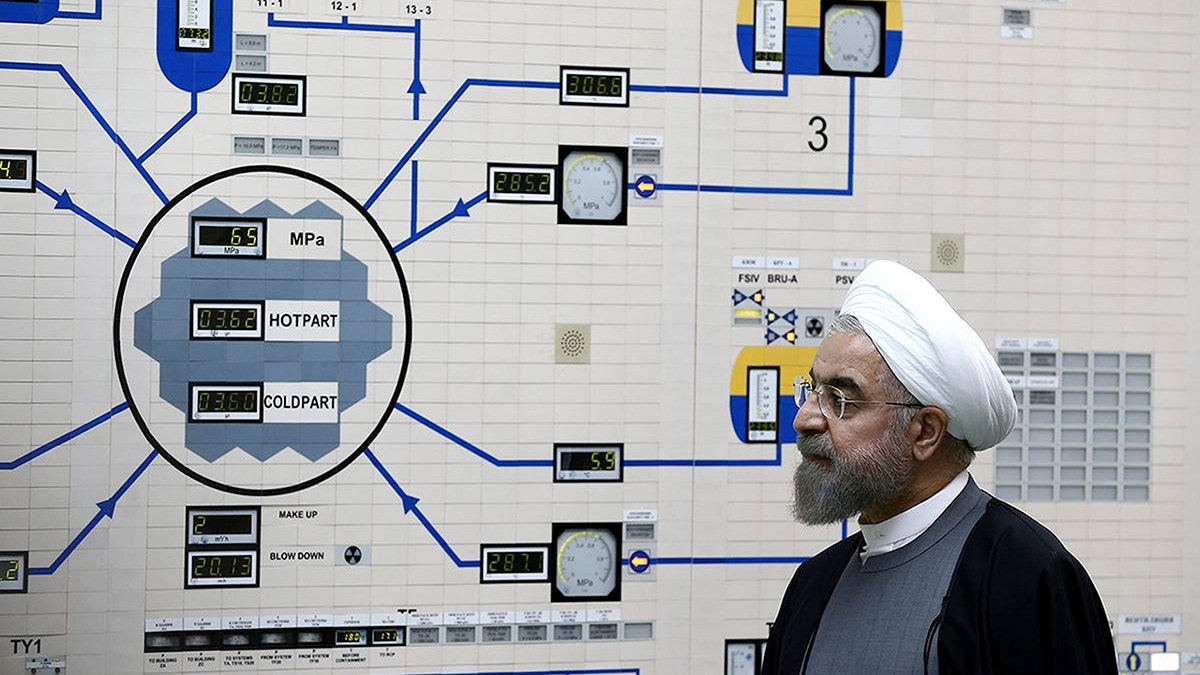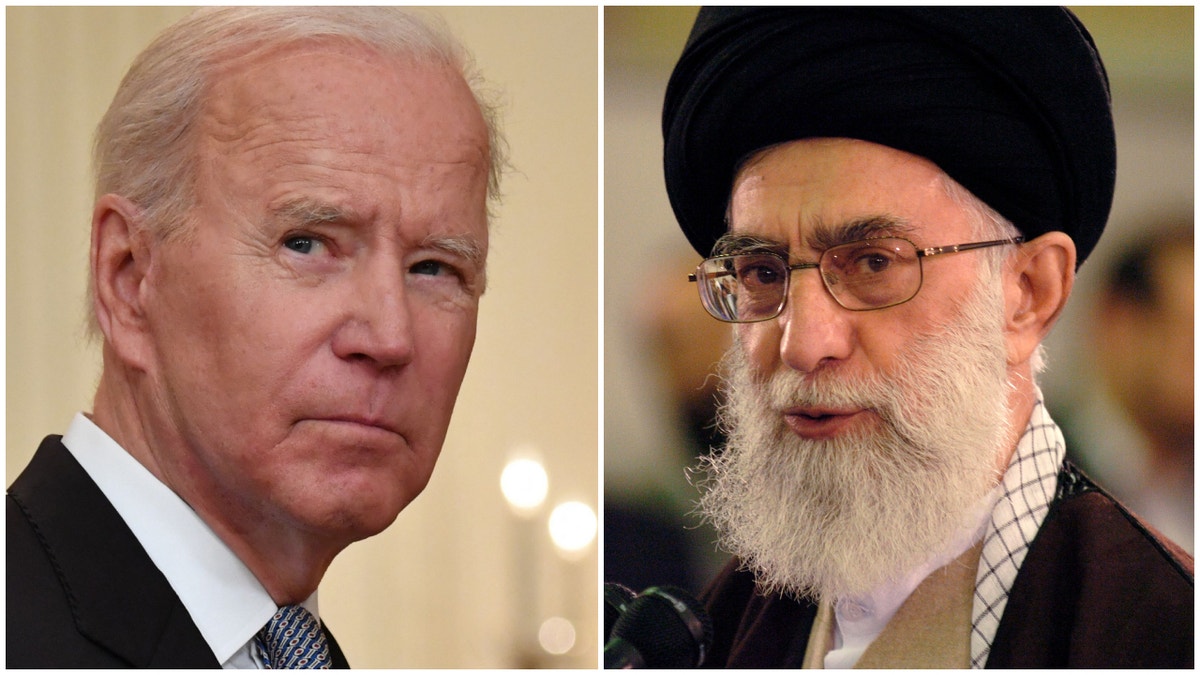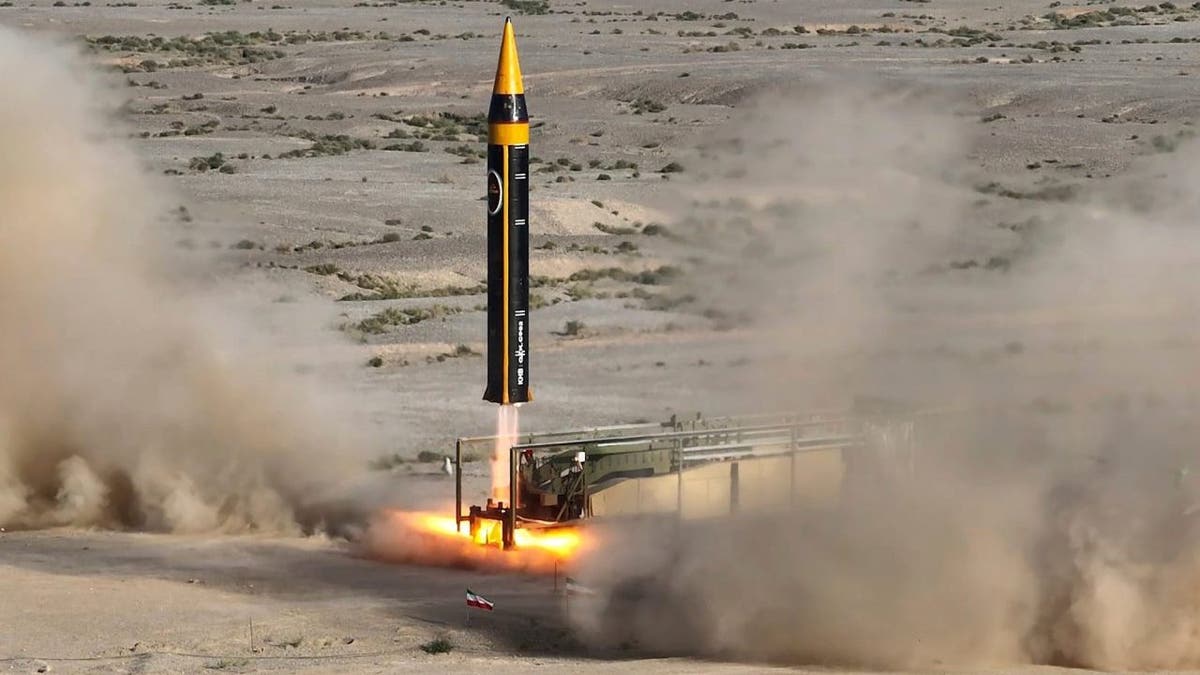Iran, China, North Korea and Russia have engaged in an ‘unholy alliance’: Rep. Mike Lawler
Reps. Jared Moskowitz, D-Fla., and Mike Lawler, R-N.Y., analyze the legislation targeting illicit Iranian oil purchases on ‘Special Report.’
A U.S. intelligence report released this week found that Iran is not developing a nuclear weapon, but it is bolstering capabilities that would make it easier for Tehran to do so.
A report by the Office of the Director of National Intelligence (ODNI) released Monday assessed said that while Iran has not directly endeavored to create an atomic bomb, it has expanded its capacity to do so since 2020 following the U.S. withdrawal from the Joint Comprehensive Plan of Action (JCPOA) in 2018.
"Iran is not currently undertaking the key nuclear weapons-development activities that would be necessary to produce a testable nuclear device," the ODNI said in a said in a two-page synopsis of the report.

Then-Iranian President Hassan Rouhani visits the Bushehr nuclear power plant just outside Bushehr, Iran, on Jan. 13, 2015. The U.N.'s nuclear watchdog said, Tuesday, Aug. 17, 2021, Iran continues to produce more uranium metal, which can be used in the production of a nuclear bomb, in a move that further complicates the possibility of reviving a landmark 2015 deal with world powers on its nuclear program. (AP Photo/Iranian Presidency Office, Mohammad Berno, File)
IRAN MOVES TOWARD POSSIBLE ATOM BOMB TEST IN DEFIANCE OF WESTERN SANCTIONS: INTEL REPORT
Though the report also found that Iran is expanding its "research and development activities that would bring it closer to producing the fissile material needed for completing a nuclear device following a decision to do so."
The findings are consistent with accounts by the U.N.’s nuclear watchdog, the International Atomic Energy Agency.
These activities mean that Iran is still in violation of the 2015 JCPOA, though Iran argues the agreement was voided after the U.S. withdrew from it under the Trump administration.
The Biden administration has made it a top priority to return to the 2015 agreement or reach a new agreement to block Iran from continuing to develop its nuclear capabilities, though many Republicans on the Hill oppose any nuclear deal with Iran and negotiations have been stalled for months.

Recent reports claim the U.S. is close to a deal with Iran that would free U.S. citizens held in Iran and also delay Iran's nuclear program. (Photo by Probst/ullstein bild via Getty Images | Photo by NICHOLAS KAMM/AFP via Getty Images)
BIDEN IRAN POLICY UNDER SCRUTINY AMID TOP AIDE'S SECURITY CLEARANCE SUSPENSION
"Iran continues to increase the size and enrichment level of its uranium stockpile beyond JCPOA limits," the report said.
The ODNI also pointed to Iran’s continued development of its ballistic missile program – which was used by former President Trump to justify his decision to pull out of the JCPOA – and noted it remains a top threat for regional nations, like Israel.
"Iran has emphasized improving the accuracy, lethality, and reliability of its missiles," the ODNI said.
Iran in May successfully test launched a ballistic missile with the ability to travel some 1,200 miles while carrying a 3,300 pound warhead.

In this picture released by the Iranian Defense Ministry on Thursday, May 25, 2023, Khorramshahr-4 missile is launched at an undisclosed location, Iran. Iran unveiled on Thursday what it dubbed the latest iteration of its liquid-fueled Khorramshahr ballistic missile amid wider tensions with the West over its nuclear program. (Iranian Defense Ministry via AP)
CLICK HERE TO GET THE FOX NEWS APP
The continued development of its ballistic missile program is a direct violation of a U.N. Security Council resolution.
Though Tehran has vowed to continue its ballistics program as a matter of defense and to promote what it argues will secure regional stability.
The Associated Press contributed to this report.








































